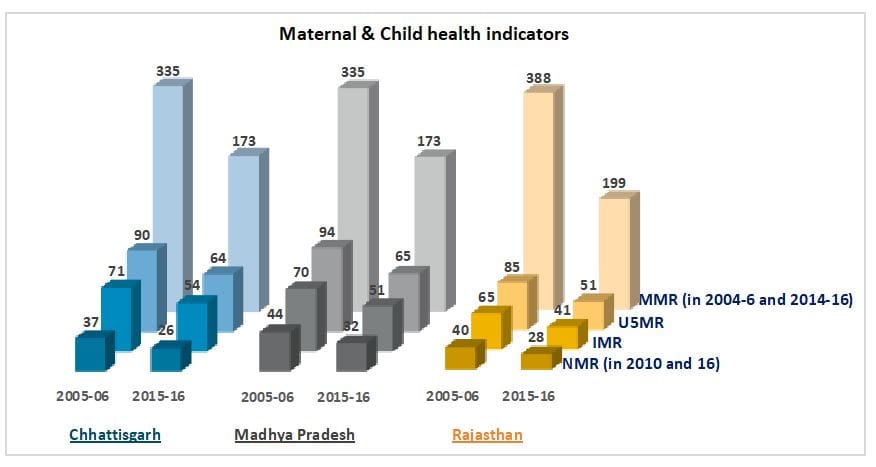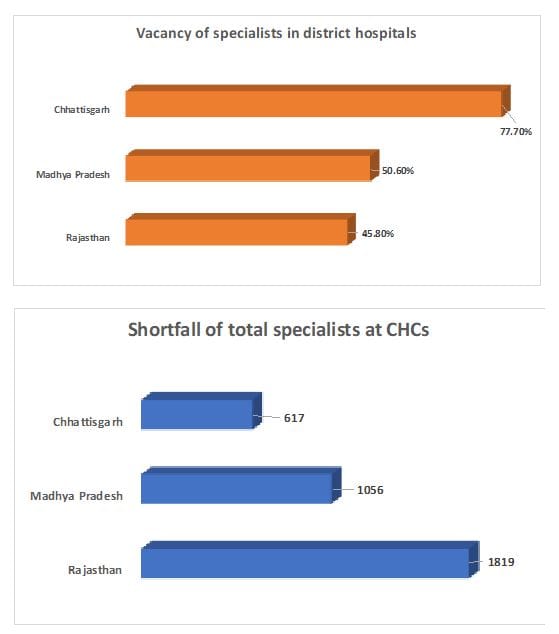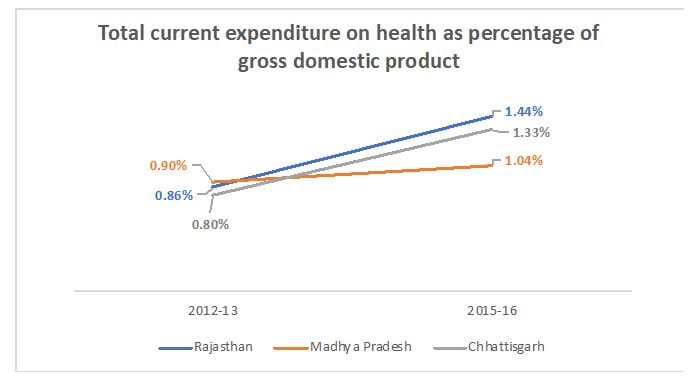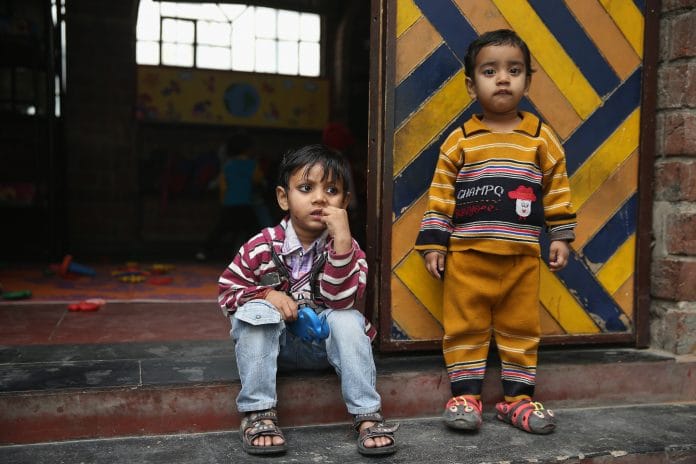Modi government will have to move on a war footing to achieve the commitments and improve overall health outcomes.
It is a remarkable coincidence that the three big states going for elections this year are among the poorest in terms of heath indicators. Rajasthan is the second-lowest performing state among larger states, and Madhya Pradesh is at fifth from the bottom.
The state of Chhattisgarh has improved and has moved up to 12th position among better performing states. While nutrition levels among children have moderately improved, wasting among children in Rajasthan and Chhattisgarh has unfortunately gone up.
Seventy per cent children in Madhya Pradesh, and 60 per cent in Rajasthan are anaemic. All this as we get ready for the rollout of the world’s largest health plan – Ayushman Bharat National Health Protection Mission (AB-NHPM) – on 25 September 2018.
These three states going for elections this winter are indeed poorly off. More than one-third of children under the age of five are stunted in all the three states. Other key child health indicators, including Infant Mortality Rate (IMR), Under-5 Mortality Rate (U5MR), Neonatal Mortality Rate (NMR), too have improved but are lower than the national average. The Maternal Mortality Ratio (MMR) continues to be extremely high in these three states. The table here shows the slow and unsatisfactory progress made by these states.
Also read: Modi’s Ayushman Bharat is the jadi booti you mix with your vote and drink
Let’s now take a close look at the healthcare infrastructure in these states. As per the latest government data (Rural Health Statistics 2010 & 17), state governments have expanded their infrastructure by establishing more hospitals, including primary health centres (PHCs) and community health centres (CHCs). But they have failed to strengthen these hospitals with basic amenities, such as regular water supply, hospital beds and electricity, at both primary and secondary level. The bigger concern is that these facilities are marred by an acute shortage of human resources.

As per the minimum norms laid down by the central government, a CHC must be manned by four medical specialists – surgeon, physician, gynaecologist and paediatrician. In Rajasthan, only 7.4 per cent of the CHCs have all four specialists. In Madhya Pradesh, the figure stands at 2.3 per cent, and in Chhattisgarh, it is 3.5 per cent.

Vacancies for specialists in district hospitals are still very high. There are a large number of PHCs in these states, which are still functioning without a doctor. These are alarming indicators and reflect the massive challenge at hand – lack of human resources to cater to the health needs of our population. Government effort must focus on this with as much zeal as it has shown while launching the health mission.
The states have marginally increased their health expenditure over three years. But clearly, this is not enough. Large population, low per-capita income and a high-disease burden in these states have substantially challenged the health outcomes. State spending must be increased to strengthen institutions that deliver comprehensive primary care that is affordable and accessible to all.
The numbers mentioned above indicate that basic healthcare hasn’t been the priority. This is not unique only to these three states, but across other regions too.
Remote rural areas in the country, which are the most affected, are deprived of fully functional or accredited hospitals. More importantly, disease profile varies across the country and several chronic ailments, such as respiratory tract infections, heart diseases and diarrheal diseases, are managed and mostly addressed through out-patient consultations.
Also read: ‘Modicare’ runs into hurdles. Here’s what’s delaying world’s largest healthcare programme
The poorest states in the country are reeling under high disease and economic burden from such ailments. Undoubtedly, a much stronger focus is needed to improve primary healthcare and to increase public spending on health.
The health sector is faced with an enormous burden. With 17.5 per cent of the world’s population, India accounts for 20 per cent of the global burden of disease. Sixty-one per cent of the deaths are due to non-communicable diseases, including heart disorders, cancer and diabetes.

India has almost half of the WHO’s average number of physicians and 45 per cent of the average number of nurses. The average Indian’s out-of-pocket expenditure on healthcare is high at nearly 60 per cent. Also, close to 70 per cent of all healthcare expenditure is on buying medicines for non-hospitalised treatments. That is why the policy debate revolves around insurance, reduction in drug prices and universal health cover for the poor.
Modicare, as some call it, attempts at providing 10 crore families free access to healthcare. While it’s too early to pass a verdict on this exercise, the government will have to move on a war footing to achieve the target strata, commitments and to improve overall health outcomes.
(Amir Ullah Khan is a health economist who was formerly with the Bill and Melinda Gates Foundation. He is visiting faculty of economic policy at the Indian School of Business.)







Congrats Mr Tharoor. You have do e an excellent job.People may not accept your actions now but history will showcase you as an ambassador of Kerala.
All efforts by charitable organisations must be appreciated and coordinated to bring back our fellow citizens,brothers and sisters life.Let others allege, but we know ground realities of Kerala deluge and it’s devastating Impact. Let us keep aside politics and sectarian thinking. Let us unite to rebuild Kerala!